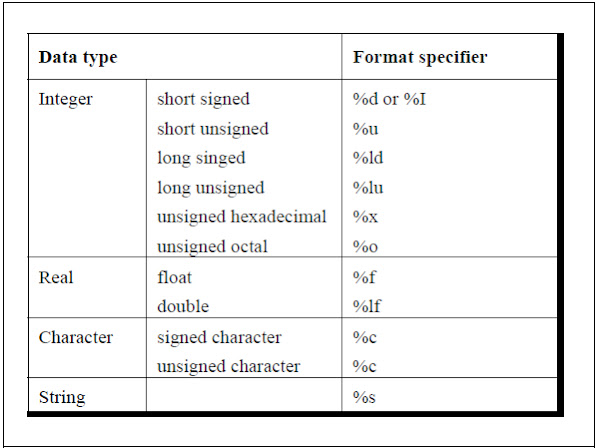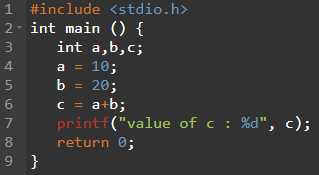C Variables
Variables are containers for storing data values, like numbers and characters.In C, there are different types of variables (defined with different keywords), for example:
int- stores integers (whole numbers), without decimals, such as123or-123float- stores floating point numbers, with decimals, such as19.99or-19.99char- stores single characters, such as'a'or'B'. Char values are surrounded by single quotesDeclaring (Creating) Variables
Format Specifiers
Format specifiers are used with the printf() function to tell the compiler what kind of data the variable contains. This is basically a placeholder for variable values. A format specifier begins with a percent sign % followed by a letter. For example, to print the value of an int variable, you must use the double-quoted format specifiers %d or %i within the printf() function.

Change Variable Values-
All C variables must be identified with unique names.These unique names are called identifiers.Identifiers can be short names (like x and y) or more descriptive names (age, sum, totalVolume).
Note: It is recommended to use descriptive names in order to create understandable and maintainable code:
The general rules for naming variables are:
- Names can contain letters, digits and underscores
- Names must begin with a letter or an underscore (_)
- Names are case sensitive (
myVarandmyvarare different variables) - Names cannot contain whitespaces or special characters like !, #, %, etc.
- Reserved words (such as
int) cannot be used as names

Comments
Post a Comment